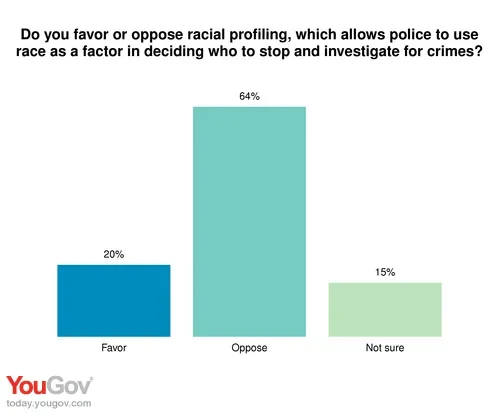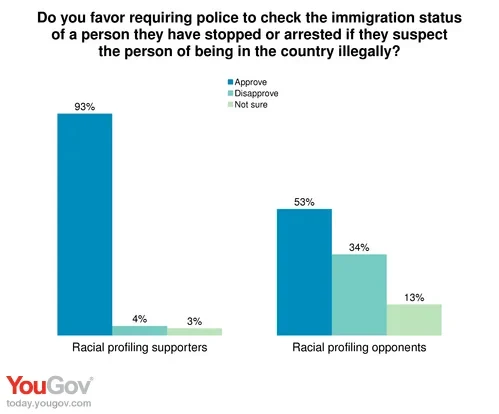(Week of 6/23/2012) The Supreme Court hearings about Arizona's immigration law primarily concerned issues of federalism (that is, the authority of the national government versus the states on immigration issues). But now that the Supreme Court has ruled that the law's most controversial portion (which requires police officers to check the immigration status of suspected illegal immigrants whom they stop or arrest for other reasons) can be enacted, legal challenges to what remains of the law will shift to another area entirely -- civil rights. That's because opponents of the law claim that it will lead to racial profiling of Latinos and other non-whites.
In the latest Economist/YouGov poll, respondents were asked if they approve of racial profiling by police in deciding whom to stop and investigate for crimes. While a strong majority (64%) of respondents stated that they opposed racial profiling, 20% of respondents stated their support for the practice and additional 15% weren't sure.

23% of whites favor allowing police to use racial profiling techniques, as opposed to 12% of Hispanics and 5% of Blacks. Party identification is a somewhat better predictor of support for racial profiling than is race: 39% of Republicans support racial profiling by police, as opposed to 18% of independents and 11% of Democrats.
Views on racial profiling are also related to views on the Arizona law's most controversial provision. 93% of racial profiling supporters approve of requiring police officers to check the immigration status of an individual they've stopped or arrested whom they suspect of being in the country illegally. But a majority of racial profiling opponents also support this policy, though in much lower numbers.

Economist/YouGov poll archives can be found here
Photo source: Press Association








